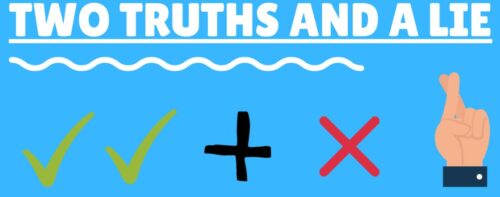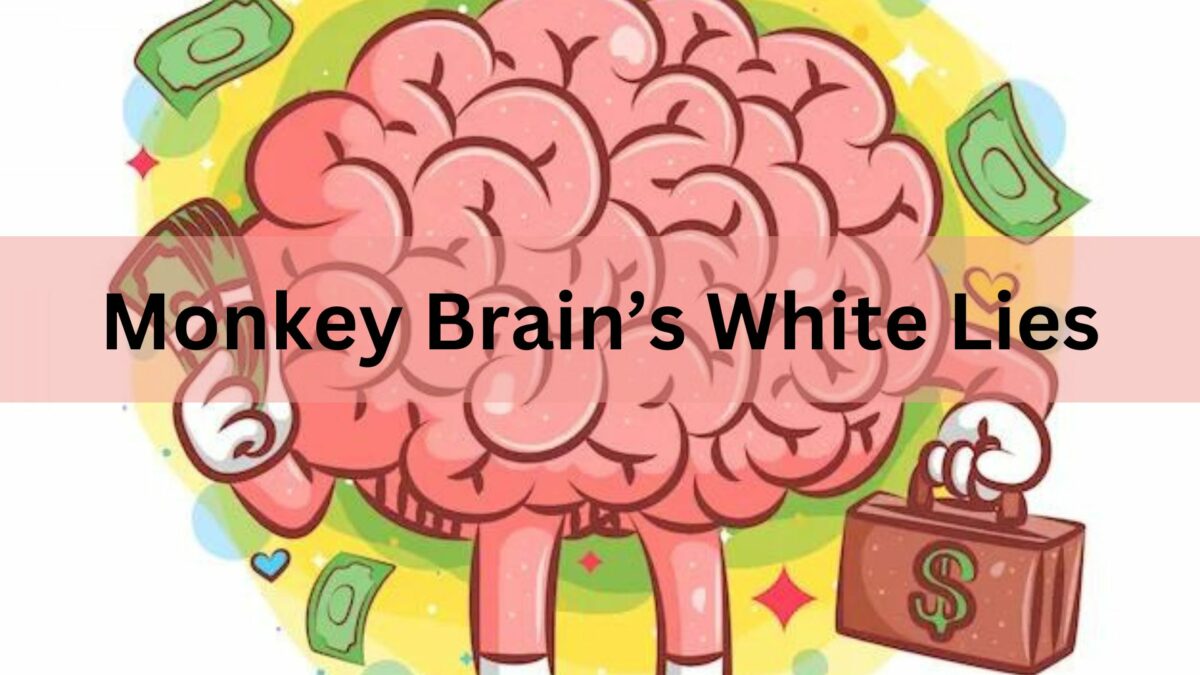“If one is to be called a liar, one may as well make an effort to deserve the name.”
–A.A. Milne
When I was a young lieutenant in the Army, I concocted a brilliant story to tell myself.
Each paycheck, I’d put $500 in my IRA and $800 in a savings account.
Then, I’d withdraw $500 and put $800 on the credit card.
I’d tell myself I was saving and being responsible.
Because of that “responsible” behavior, I deserved to cut loose a little.
Pretty soon, I had a nice, fat credit card balance that I eventually had to deal with.
But, for quite a while, it was fairly easy to keep up the inner dialogue with myself.
What was happening is that Monkey Brain, my limbic system, is really good at treading in the gray moral areas of life. Back in the caveman days, when all he cared about was either eating the woolly mammoth or being eaten by the woolly mammoth, there were no such things like philosophy and morals. Each day had one goal: live to see the next day. Everything else was secondary.
So, when little trifles like honesty get in the way of Monkey Brain having a good time, he’s going to pitch a fit and rattle his cage.
To get his way, he’s going to stretch the truth a little or be just a little dishonest, hoping that the Thinking You, your prefrontal cortex – the part of your brain that is responsible for higher level, rational thinking – won’t notice.
Most of the time, it works.
MONKEY BRAIN: “WHITE LIE NOT BAD. LONE RANGER WORE WHITE. LONE RANGER GOOD GUY. THEREFORE, WE GOOD GUY.”
You: “Ah. Yes. You’re right! I’m a good person, and gosh darn it, people like me!”
We face a problem when we have to make changes in our lives to improve what will happen to us in the future. Monkey Brain doesn’t like change. He prefers things to stay just as they are, unless, naturally, the future involves more Jimmy Choo shoes and 183” flat screen TVs. Then, he likes change. But, otherwise, he wants yesterday to look like today and for today to look like tomorrow. This is called the status quo bias, and he’ll do anything he can to dig his paws in to the ground and not move.
This includes telling a few little white lies about what we’re doing in our lives.
As Duke’s Dan Ariely and others demonstrated through a series of experiments, we’re willing to push the boundaries a little in telling stories about ourselves if the lies aren’t too outrageous. We’d rather tell little lies to ourselves than to actually have to change our behaviors.
But, if we’re telling lies like the following, we’re actually doing ourselves harm:
The lie: I’m living within a budget!
The truth: I make a budget each month, but then I miss my budget by $200.
The lie: I’m planning for retirement!
The truth: I have this picture of me sitting on a beach sipping umbrella drinks, but I’m not really doing anything about it.
The lie: I’m a skilled investor!
The truth: I watch CNBC for stock tips and have no clue if my investments are solid. But, hey, Cramer said “BUY BUY BUY!”
How to turn those little white lies into little white truths

According to Dr. Ariely and his team of researchers, there are three ways to make Monkey Brain be more honest with you.
Invoke religion
For those of you who are religious, this goes a long way in helping, but as Ariely’s experiments proved, even if you’re not religious, having a reminder of religion or a religious symbol will improve your honesty with yourself.
The next time you’re reviewing the budget, particularly the part where you look at how much you spent compared to what you budgeted, pull out the Bible and place it next to you. If you don’t have a Bible, print out the Ten Commandments and stick the piece of paper on the wall. The subtle invocation of religion will scare the h-e-double-hockey-sticks (bonus points to the first person in the comments who can tell me where that comes from) out of Monkey Brain and put him on the straight and narrow. You’ll start down the path of actually spending what you said you’d spend.
Remind yourself of your commitments

Usually, this comes in the form of an oath or an honor code. In Ariely’s experiment, students were reminded of a non-existent honor code, and just thinking about the honor code, even though there was no such honor code at the university the test subjects attended, was enough to make them more honest.
If you don’t have an honor code in your house, there are two other ways that you can remind yourself of your commitments:
- Use your accountabilibuddy. Making a commitment to someone else is powerful medicine. Monkey Brain doesn’t like for someone else to tell him that he’s wrong. So, if you make commitments to your accountabilibuddy, then that person can remind you of what you promised to do when times get tough. Monkey Brain won’t like being called on the carpet and will do what it takes to make your accountabilibuddy happy.
- Make anti-motivational commitments. As we saw in the article “Use Anti-Motivation to Pay Down Debt,” creating negative incentives works to keep you on the straight and narrow. If you don’t want to donate $500 to the Anti-Sock Lint Society, then you’ll make sure that you’re contributing to your IRA. Every. Single. Month.
Don’t put something between you and your money
In one of the experiments, Ariely’s team paid actual cash for completion of tasks. In the experimental group, they paid tokens that were then redeemable for the same amount of cash. Just the introduction of tokens rather than real cash significantly increased the dishonesty of the people participating in the experiment.
When you need to spend money, don’t use a credit card unless you absolutely have to. The credit card is a token that is, according to Monkey Brain, symbolic for cash and not actually cash itself. Therefore, it’s easier to tell little white lies to you about your spending. When you make your budget, pull out what you need to spend in cash. It’s hard to pretend that you didn’t spend the money when there’s no cash left.
What’s the biggest little white lie you’ve told to yourself? Let’s talk about it in the comments below!
Author Profile
- John Davis is a nationally recognized expert on credit reporting, credit scoring, and identity theft. He has written four books about his expertise in the field and has been featured extensively in numerous media outlets such as The Wall Street Journal, The Washington Post, CNN, CBS News, CNBC, Fox Business, and many more. With over 20 years of experience helping consumers understand their credit and identity protection rights, John is passionate about empowering people to take control of their finances. He works with financial institutions to develop consumer-friendly policies that promote financial literacy and responsible borrowing habits.
Latest entries
 Low Income GrantsSeptember 25, 2023How to Get a Free Government Phone: A Step-by-Step Guide
Low Income GrantsSeptember 25, 2023How to Get a Free Government Phone: A Step-by-Step Guide Low Income GrantsSeptember 25, 2023Dental Charities That Help With Dental Costs
Low Income GrantsSeptember 25, 2023Dental Charities That Help With Dental Costs Low Income GrantsSeptember 25, 2023Low-Cost Hearing Aids for Seniors: A Comprehensive Guide
Low Income GrantsSeptember 25, 2023Low-Cost Hearing Aids for Seniors: A Comprehensive Guide Low Income GrantsSeptember 25, 2023Second Chance Apartments that Accept Evictions: A Comprehensive Guide
Low Income GrantsSeptember 25, 2023Second Chance Apartments that Accept Evictions: A Comprehensive Guide

